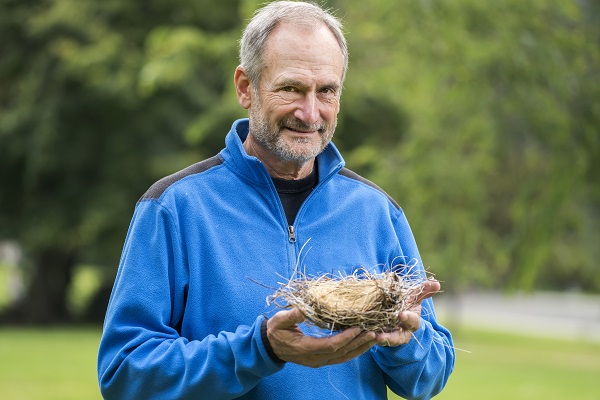Lecture #12: A Century of Climate and Land-Use Change on California’s Birds and Mammals: Are Parks Doing their Job?
November 13, 5:00-6:00pm Vancouver time (Nov 14, 9:00-10:00am, Beijing Time)
RSVP for more details: info.afrc@ubc.ca
Keynote Speaker: Dr. Steven R. Beissinger
Professor, Department of Environmental Science, Policy & Management, UC Berkeley, USA
Steven R. Beissinger is Professor of Ecology & Conservation Biology at the University of California, Berkeley, where he held the A. Starker Leopold Chair in Wildlife Biology (2003-13), and is a research associate of the Museum of Vertebrate Zoology. Professor Beissinger served as Chair of the Department of Environmental Science, Policy & Management from 2001-04, and is the co-Director of the Berkeley Institute for Parks, People, and Biodiversity. Dr. Beissinger joined the faculty at Berkeley in 1996 after spending eight years as a professor at Yale University and two years as an NSF Postdoctoral Fellow at the Smithsonian Institution’s National Zoo.
Professor Beissinger’s professional career has been devoted to producing ecological knowledge that can be used to both conserve biodiversity and to uncover basic processes in behavioral and population ecology that govern how nature works. His current research centers on two of the biggest challenges facing conservation and society –wildlife responses to global change and species’ extinctions – with recent fieldwork carried out in protected areas and working landscapes in California and Latin America. He directs the Grinnell Resurvey Project – a 16-year effort to revisit locations throughout California first surveyed by Joseph Grinnell in the early 1900’s in order to quantify the impacts of a century of climate and land-use change on the birds and mammals of California. Steve’s studies of parrotlets in Venezuela extend more than 30 years and provides the longest-running study of a tropical bird. Integrative studies of secretive, threatened rails in California provide a model for understanding coupled natural and human systems. He has authored over 200 scientific publications and is senior editor of three books, including Science, Conservation and National Parks (2017), and Population Viability Analysis (2002). He served on the editorial boards of Ecology Letters, Ecology, Conservation Biology, Studies in Avian Biology, and Climate Change Responses.
Steve is a Fellow of the American Association for the Advancement of Science (AAAS), the Ecological Society of America (ESA), the Wissenschaftskolleg zu Berlin (WIKO), the California Academy of Sciences, and the American Ornithological Society (AOS, formerly the American Ornithologists’ Union or AOU), which awarded him the William Brewster Memorial Award in 2010 for his research on Western Hemisphere birds. Steve served on the Board of Directors of the National Audubon Society (2002-2009), and as President-elect (2014-2016) and President of the AOU (2016) and as the inaugural President of the AOS (2016-2018).
Professor Beissinger earned a B.S. (1974) and M.S. (1978) in Zoology at Miami University and a Ph.D. (1984) in Natural Resource Ecology at the University of Michigan.
